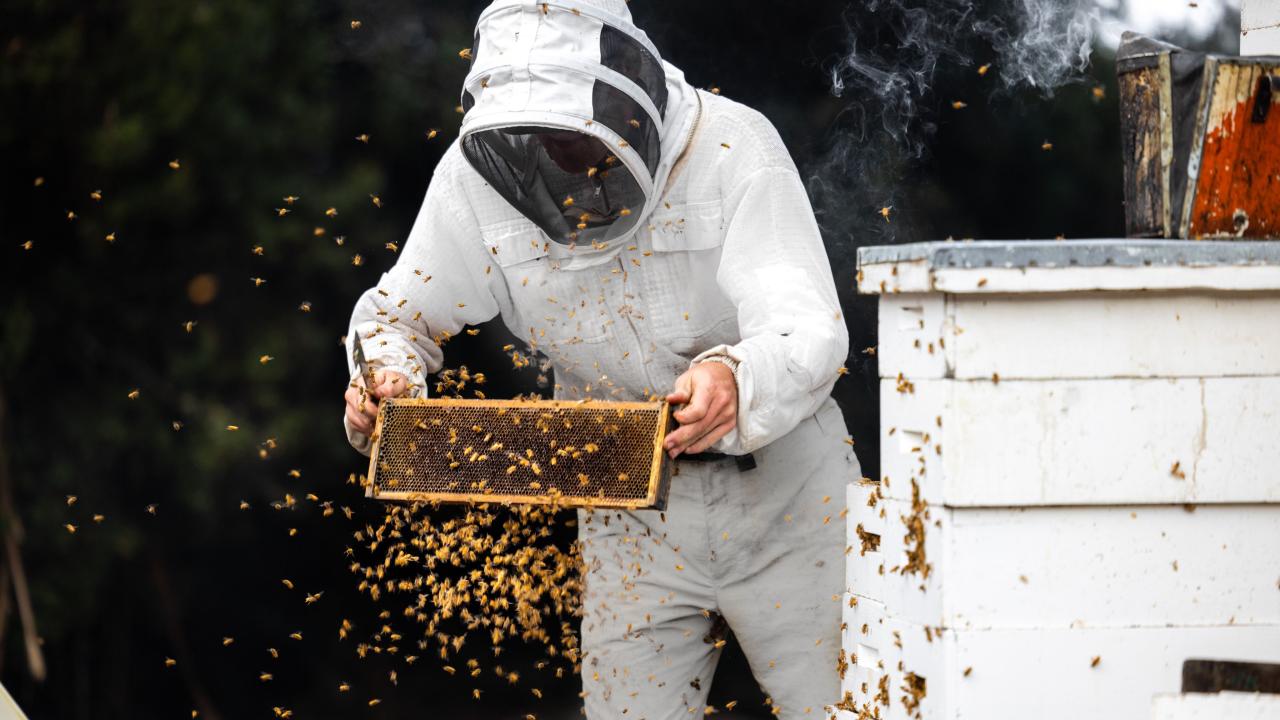Retelling a sweet success story

IT is one of the most unique food products in the world and Tasmanian leatherwood honey producers are hoping a new marketing campaign will once again open up export opportunities for their liquid gold.
For decades Tasmanian honey producers exported their products across the globe but an increase in cheaper products from countries including China has gradually seen those valuable markets dry up.
Now the state’s major commercial honey producers have joined forces in a marketing program through the Tasmanian Beekeepers Association to promote the state’s unique leatherwood honey.
The campaign has been funded with $147,000 from the State Government and its framework is centered around brand, influence, communications and information provision.
Communication specialist Richard Gerathy was involved with developing the program and said one of the first steps of the process was to create a trademark.
The trademark is available for producers to use and will be a visual representation for leatherwood honey.
Tasmania’s wilderness area is the only place in the world where leatherwood honey is produced and this is a key part of the industry’s marketing strategy.
The campaign will include a library of images that can be used by producers along with short videos for social media. There will also be longer videos for use on television and a dedicated YouTube channel has also been developed. A new leatherwood honey website has been set up to help promote the industry’s products.

Mr Gerathy said regular media releases will be sent out across the country based around key times in the apiary calendar.
“The old story with communications of course is we’ve got to keep throwing it out there to get it to stick, so we’ll keep putting it out there to get some traction,” he said.
Tasmanian Beekeepers Association president Lindsay Bourke said the three key aims of the marketing strategy were to build a Leatherwood Honey brand identity, generate brand equity and build the sphere of influence of the honey itself.
Mr Bourke says leatherwood honey is totally unique to Tasmania and export markets are crucial for the industry. “We produce far too much for locals and for Australia, so we need exports like we used to have,” he said.
It is estimated there are currently several hundred tonnes of honey in storage across the state’s major producers, and Mr Bourke said a few years ago this would have been unheard of.
“It wasn’t long ago there wasn’t a drum left,” he said.
He said a flood of cheaper imported honey from other countries was part of the problem.
“Honey comes into Australia and 5 per cent of it is checked at the border . .. the honey that comes from New Zealand though isn’t checked, which is not good because it can be treated as a dumping ground,” Mr Bourke said.
“I’m not saying any of it is bad, but if it doesn’t come up to scratch they can dump it into Australia.”
China was also once a major market for premium Tasmanian honey but Mr Bourke said in recent years that market had been flooded with cheap, locally produced honey.

A key difference with Tasmanian leatherwood honey is where and how it is produced.
“This is the cleanest place in the world to produce honey,” Mr Bourke said.
“Our state is the most organic producing state in the whole world, because we don’t have to treat for small hive beetle or varroa. “All those treatment chemicals can get into wax and honey and other things.
Where we produce our honey in the rainforest there’s no spraying for crops or anything, it’s so pure.” Producing leatherwood honey is a labour-intensive job and requires beekeepers and staff to travel to some of the state’s most remote regions each year.
The leatherwood season starts in early January and finishes at the end of February and Mr Bourke said producers had to make the most of the small window.
Without an increase in honey sales, Mr Bourke said producers would be under financial pressure.
“If we couldn’t sell it, we would probably have to drop the price and it would most likely go into large packers where they would blend it with other honey, which would be very disappointing,” he said.
“We’re paying a lot in wages ... we have the latest very good equipment and it costs us a lot to produce, so we need to get some money back for our product because it is the best.”
With the new honey season starting soon, Mr Bourke said increasing honey sales was critical.
“We haven’t had a really good season for five or six years so we if we have a bumper season, we won’t have any room,” he said.


Add new comment